In the last 65 years, if there’s been a demanding off-road adventure to be had, there’s been a Land Rover well up to the task. Britain’s off-road legend has long been the choice of farmers, explorers, even entire armies – and when other 4x4s reach the limits of their off-piste potential, it's often a ‘Landie’ which comes to the rescue.
As we mention elsewhere, 1955 saw a group of students pilot a pair of Series 1s on the first overland journey from England to Singapore, their experience no doubt a highlight of their lives. The traditions of ambitious expeditions now lives on: after previous drives across the Icelandic glaciers and Bolivian ‘death roads’, this year’s Land Rover Experience Tour takes to the historic Silk Road – from Berlin, via the Ukraine, Russia, Kazakhstan, Uzbekistan, China, Tibet and Nepal, to the Indian city of Mumbai. We take the wheel of a Range Rover Evoque from Kathmandu to Delhi.
Welcomed by the Himalayas

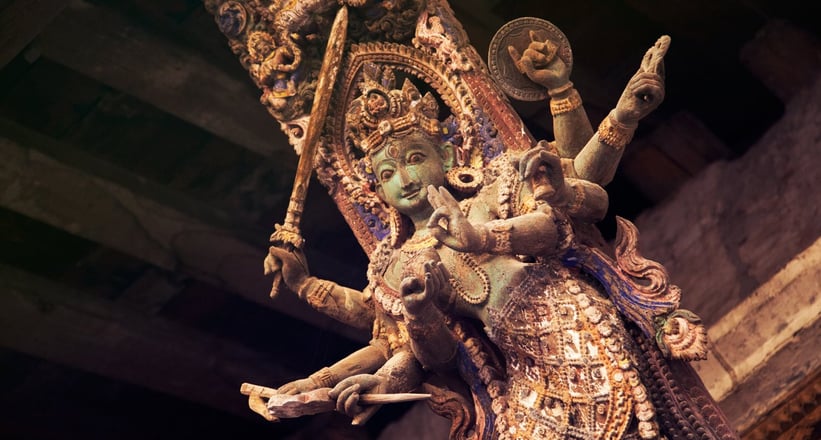
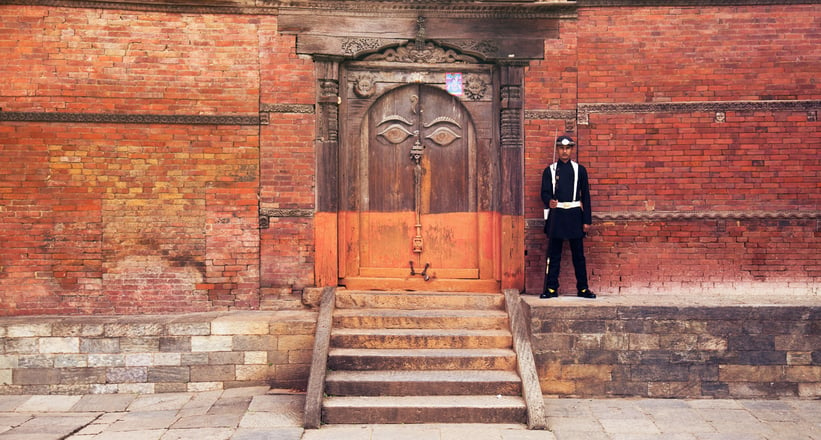
So, my childhood dreams of reliving Tintin’s adventures are finally coming true: we land in Kathmandu, at the foot of the Himalayas. Since its borders were opened in 1948, many travellers have longed to explore the Nepalese royal city – and the 60s saw many a free spirit seek spiritual and psychedelic enlightenment here. Today, the metropolis is a springboard to Mount Everest, Annapurna and the countless other eight-thousanders in the ‘roof of the world’. Even travelling as far as base camp requires some courage – few countries have scarier runways and accident statistics. We leave the mythical mountains in our rear-view mirror, and plunge into the first of many road-based adventures.
From Kathmandu to Pokhara
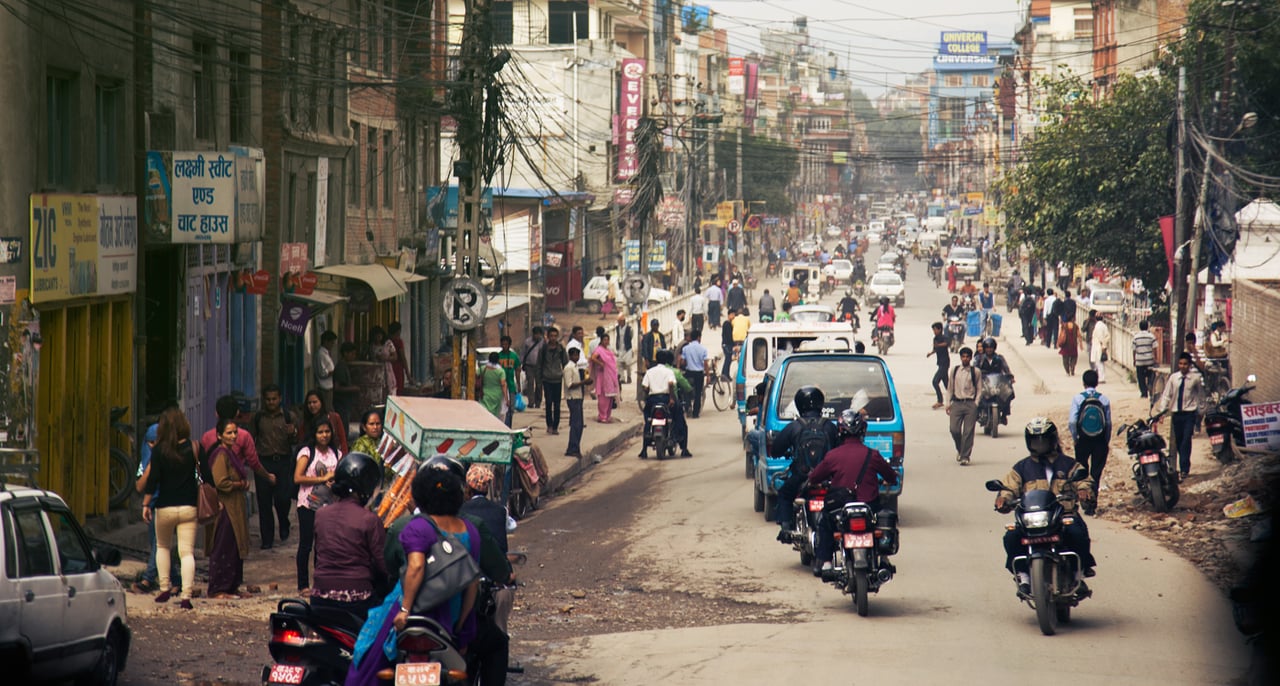


Quite simply, those who curse the traffic of London or Paris would have a full-scale meltdown in Kathmandu. In an assault of honking horns and black clouds spouted by the trucks, buses and the other vehicles wrestling for space, the lack of hesitation required while exploring gaps with millimetric precision is terrifying for a newcomer. The friendly waves aimed at our Land Rover caravan help soothe the nerves, but sidestepping the heavy goods vehicles still requires focused attention, regardless of how bright their decorations are. Still, it provides a good opportunity to test the fluidity of the Evoque’s new 9-speed gearbox, but the addition of three ratios does a lot more for fuel economy than it does for accelerating the Evoque into tiny gaps. As we reach Pokhara in the early evening, exhausted, the sunlit peak of the 7,000-metre Machapuchare – known as the seat of the Buddha of infinite light – begins to dominate the windscreen with all its golden glory.
Over the hills and on to Nepalgunj
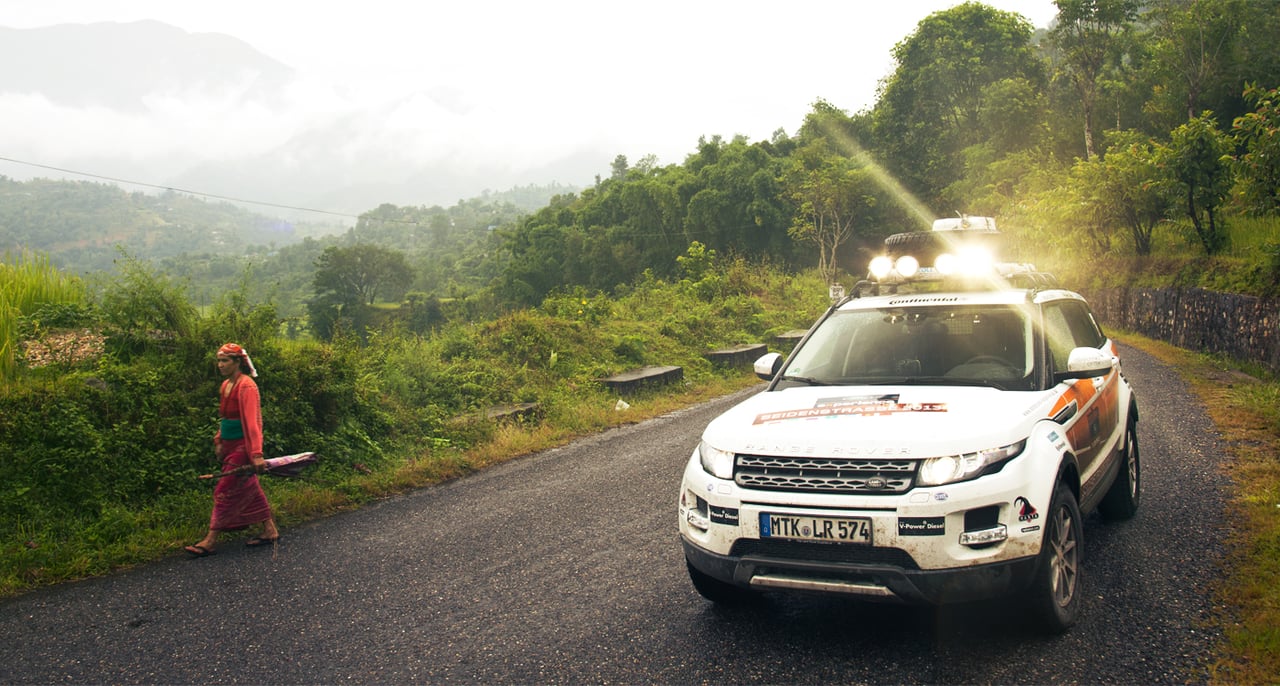
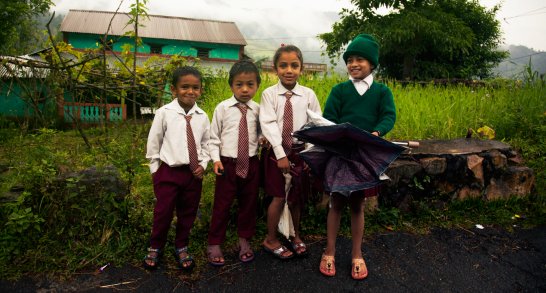
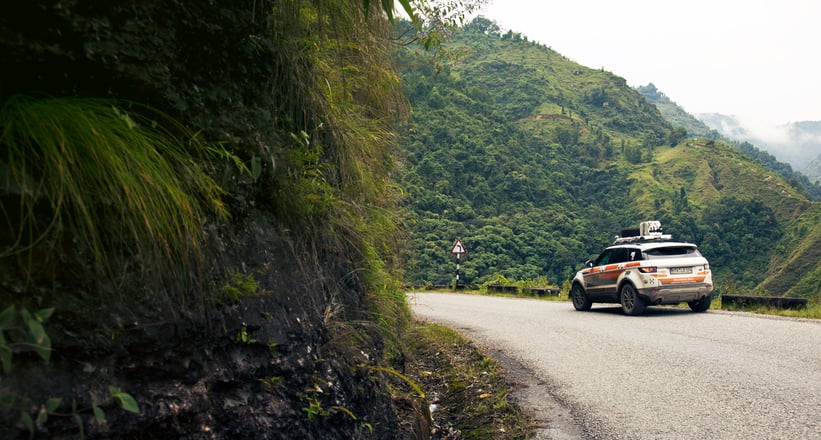
In balmy weather, the Pokhara Annapurna and the Phewa lake which lies beneath combine to create a scene worthy of a thousand postcards, but today the weather gods send us only clouds. However, as we make our way southwest towards Nepalgunj, the Mahabharat range acts as a picturesque substitute. Our convoy’s foreground of lush, monsoon-fed forests lies in an eerie mist, which thankfully obscures the several-hundred-metre drop into the abyss at our side. We edge past trucks, farmers and water buffalo, and to our surprise pass a steady stream of wide-eyed children in their school uniforms. At the halfway point to Nepalgunj, the landscape theatrically changes to one of open fields, where each building is clearly influenced by thousands of years of Indian history.
Through the tiger forest
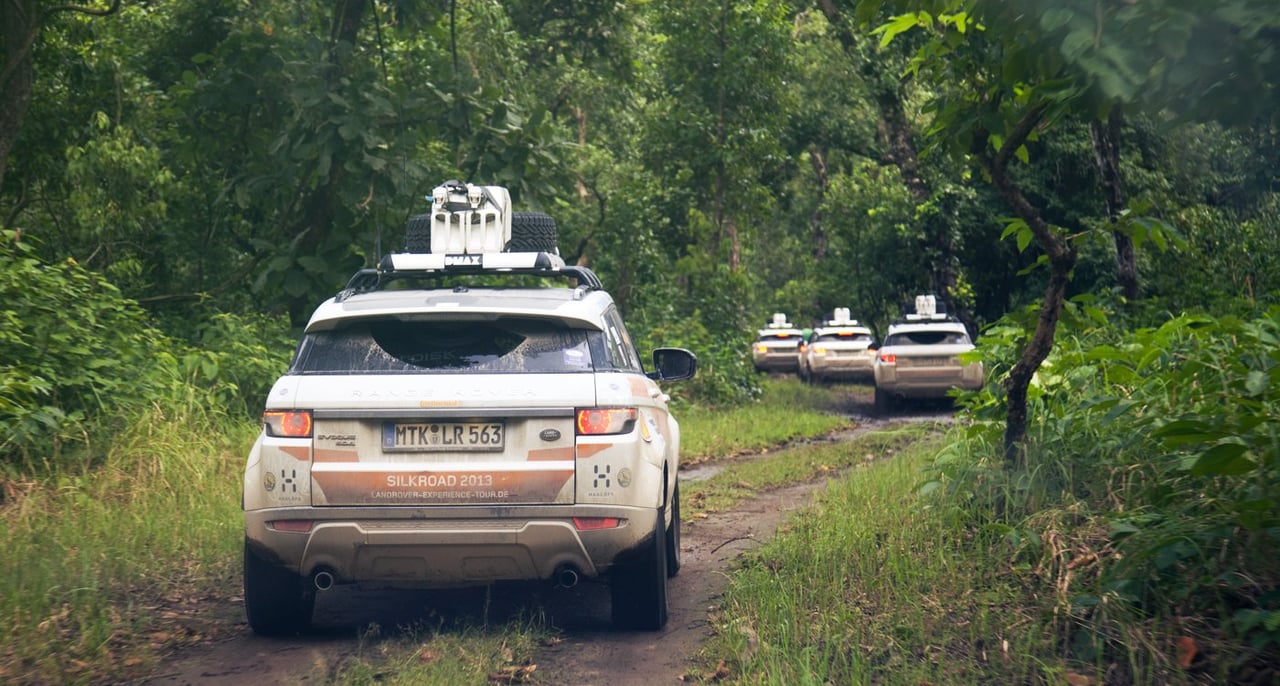
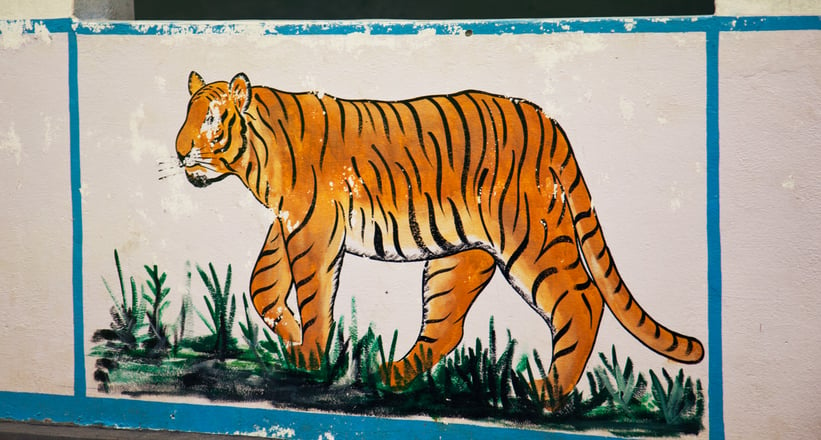
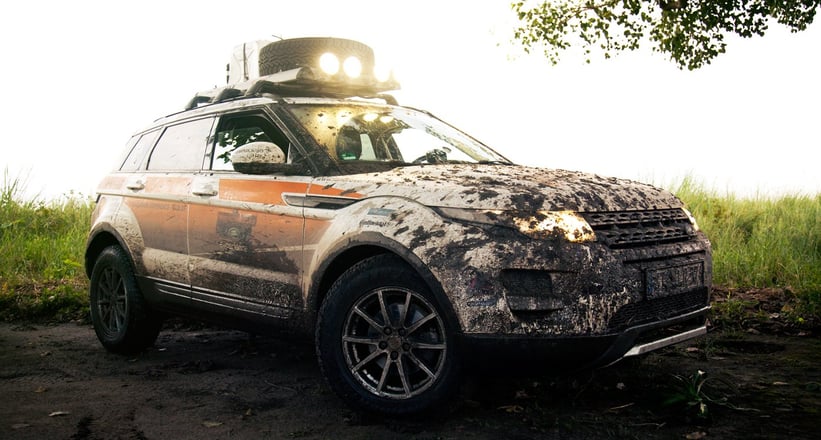
Regardless of its cultural beauty, Nepalgunj is not a place to stay any longer than necessary. The climate is tropical and humid, the rain is hammering down, and the deep teak forests hide numerous crocodiles lying in wait at the riverside – so we set off bright and early in the morning towards our final stop at the Indian border. We’re told that the Sukla Phanta Wildlife Reserve also hosts tigers, rhinos and pythons, so this is a point where you really need to invest faith in the Evoque’s Terrain Response system – and not once does it let us down. With an appropriate soundtrack selected, the Range Rover convincingly performs its own stalk through the undergrowth – but corner-of-the-eye rustles in the twilit forest still send shivers up the spine, no matter how comfortable the leather seats and armrest try to make you.
Wild India and the Delhi terminus
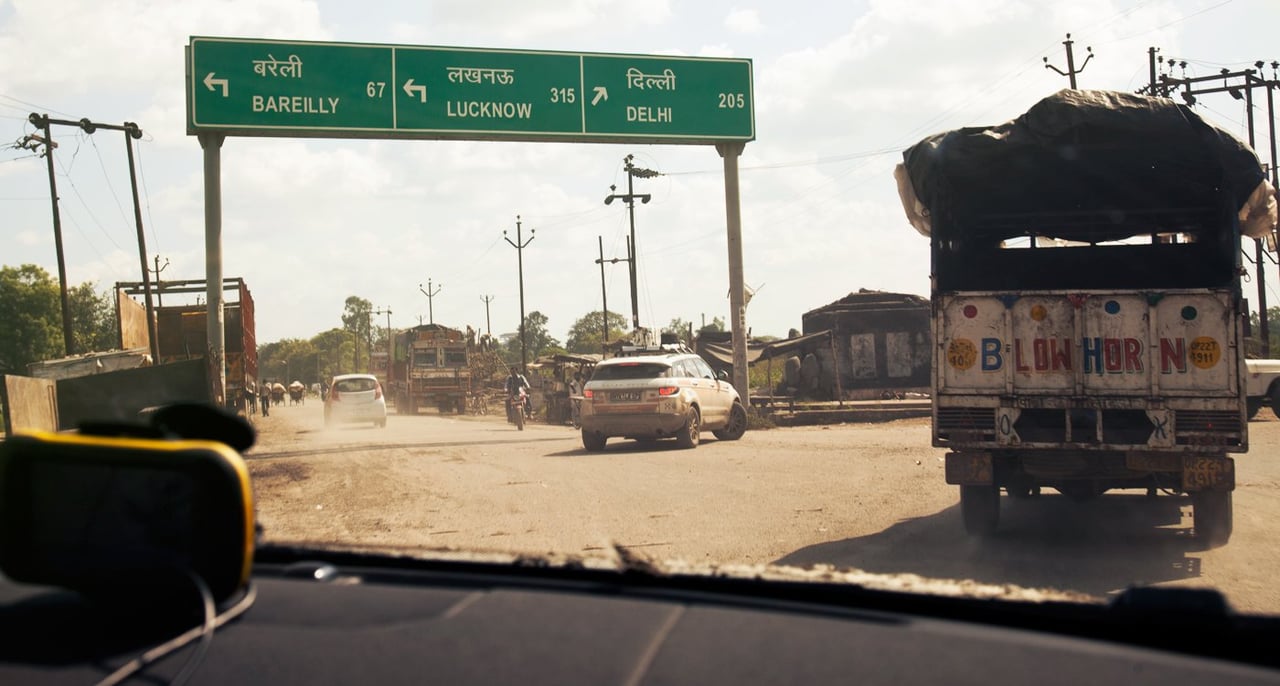
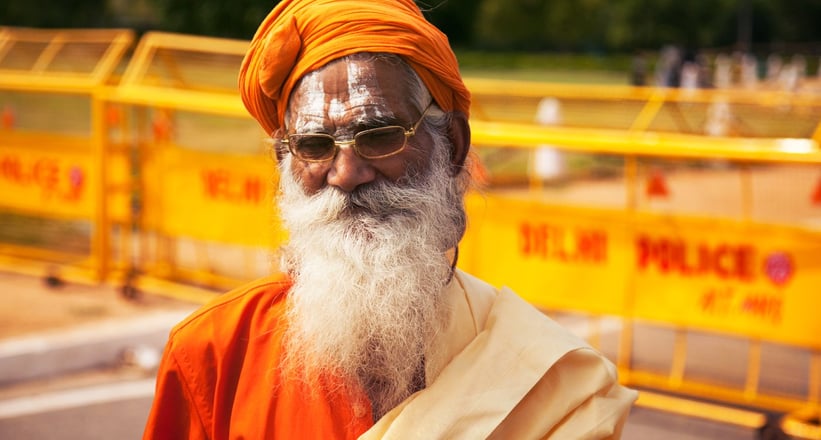
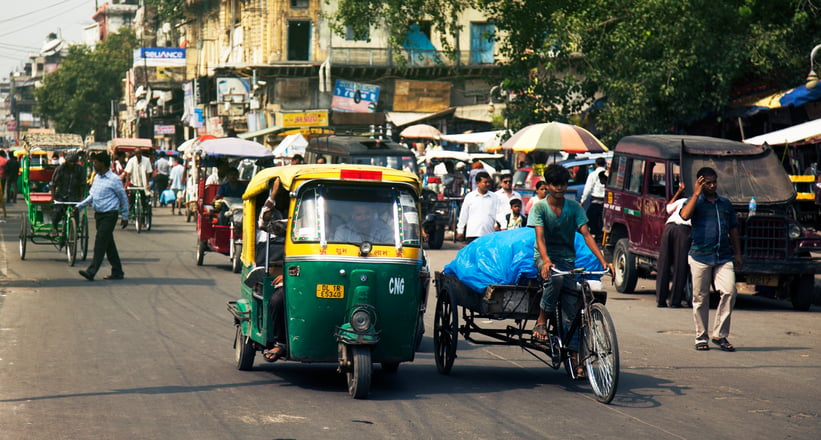
Despite our adventures, crossing the Indian border is a demanding experience in itself: the data records of the group are all entered by hand into a giant book, and all documents signed and stamped prudently. After three hours of loitering in the now-scorching sun, we’re allowed to cross the narrow bridge towards India, the last country in the route’s itinerary. Amazingly, the traffic here is worse still than Kathmandu’s: the wild slalom now includes cows, dogs and goats. More challenging is trying to accept the heart-breaking scenes of shacks, slums, dying animals, chemical plants, and children playing in garbage dumps, but the colourful outfits and friendly greetings help. The emotions we go through are as changeable as the terrain we’ve encountered along the way.
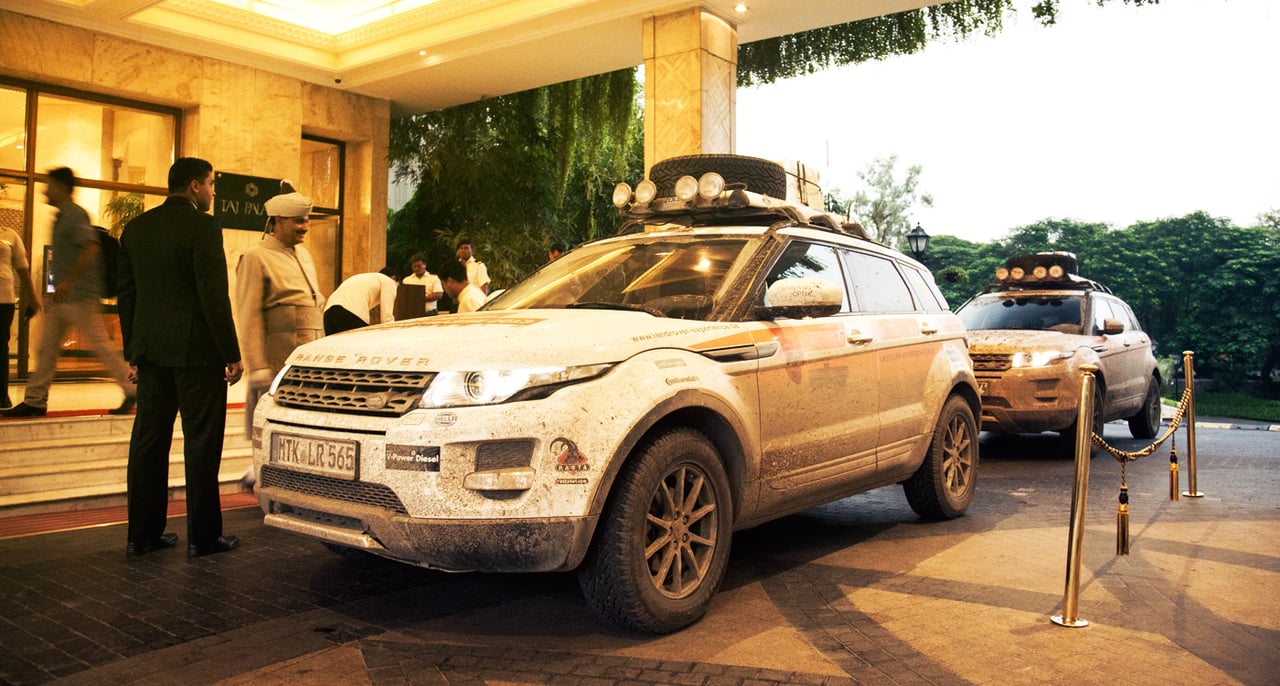
We arrive in Delhi just as the sun casts a red glow through the smog of the mega-city. And in one last striking contrast, the final metres of the route see the convoy slip through the embassy district, whose gardens resemble those of Beverly Hills. Covered in nature’s decorations, the Evoques come to rest outside the elegant Taj Palace Hotel. Over a G&T, we discuss the imagery and experiences we’ve encountered in the last few r Evoque from Kathmandu to Delhisurely stay in our minds for years to come.
Photos: Jan Baedeker
































































